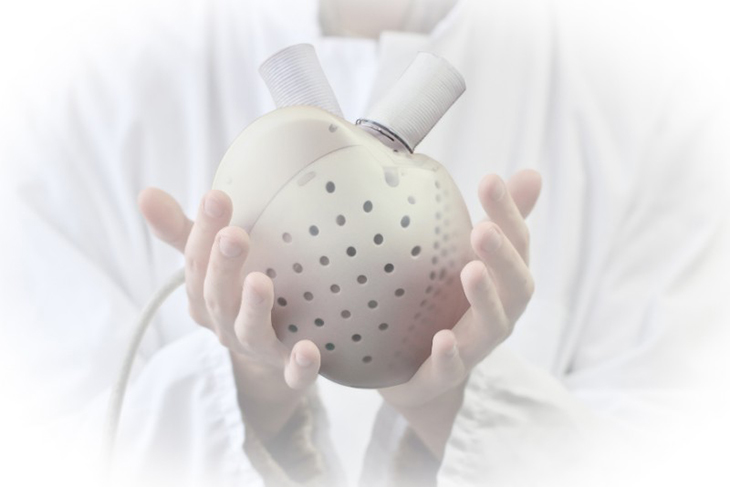
A 39-year old man with heart failure has been given a new lease on life after surgeons from Duke University managed to successfully transplant a new-generation artificial heart into his body which was a first for any North American hospital thus far.
The artificial heart, which was developed by CARMAT, a French company whose vision is to “Become the primary alternative to heart transplants with the implementation of our Total Artificial Heart.” Since CARMAT released its product, they have been given approval to use and sell their products in Europe.
But last year, they received approval from the U.S. FDA to allow them to start studies, enrolling at least 10 patients diagnosed with end-stage biventricular heart failure. These recipients are patients that have been on a waiting list for a heart donor for so many years, and this gives them a life-saving bridge before they get a real heart transplant.
Transport surgeon and principal investigator of the device study at Duke University, Dr. Carmelo Milano, shared, “We are encouraged that our patient is doing so well after the procedure Monday. As we evaluate this device, we are both excited and hopeful that patients who otherwise have few to no options could have a lifeline.”
For 39-year old patient Matthew More, who hails from North Carolina, it was a major lifeline. He was referred to the Duke study back in June when he was suddenly given a very unexpected heart failure diagnosis. Just a few months before his devastating diagnosis, Matthew and his wife Rachel had just adopted a two-year old foster son named Marshall. When they came to Duke, the plan was for Matthew to under a heart bypass surgery only.
Sadly, his condition worsened very quickly, and sadly the traditional option of waiting for a heart transplant was too risky for Matthew, because the wait could be too long. Notably, Duke was one of three transplant centers within the United States that was chosen to join the device study, with their doctors and procedure teams given very specialized training sessions just to prepare them for the implant surgery.
For Matthew’s wife Rachel, who also happens to be a nurse, she said, “Both Matthew and I are so grateful that we’ve been provided an opportunity to participate in something that has the potential to have an impact on so many lives. We are just taking it day-by-day and hope everything continues to progress well.”
Called an ‘Aeson,’ the artificial heart device ‘is an implantable prosthetic that includes biological valves derived from bovine tissue and operates on an external power supply.’
Should the device be given FDA approval, it can provide not just hope for heart transplant patients, but a chance for those transplant patients whose hearts need assistance to ‘pump blood through both chambers.’ The current available technology, which is a left-ventricular assist device or LVAD, only supports one chamber.
Lead transplant surgeon on Matthew’s transplant team, Dr. Schroder, shared, “Because of the shortages of donor hearts, many patients die while waiting for a heart transplant. We are hopeful for new options to help these patients, many like Mr. Moore, who have devastating disease and cannot otherwise be considered for a transplant.”



